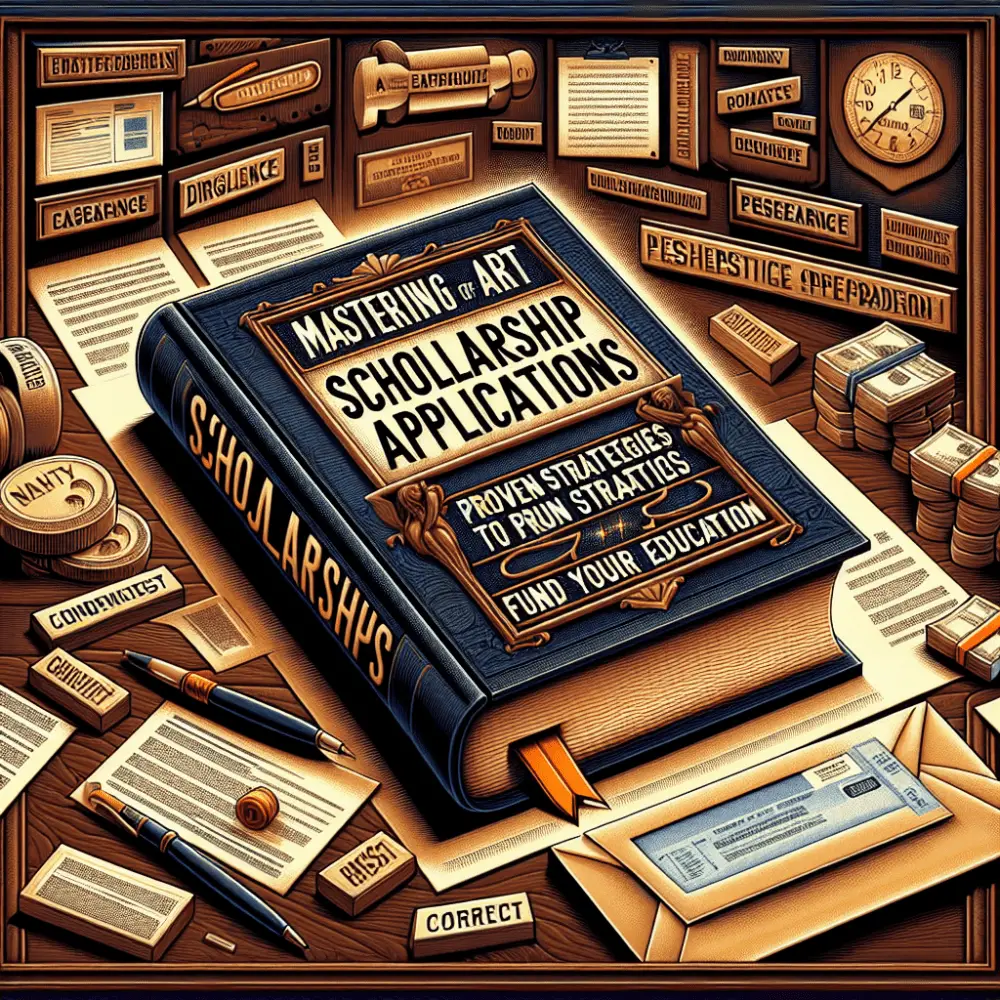
Mastering the Art of Scholarship Applications: Proven Strategies to Fund Your Education
Introduction:
Scholarship applications can be a daunting task for many students, but with the right strategies and approach, they can become an opportunity to secure funding for your education. Scholarships not only provide financial support but also recognize students’ accomplishments and potential. By mastering the art of scholarship applications, you can increase your chances of securing funds for your education and alleviate the burden of student loans.
Securing scholarships is not a stroke of luck; it requires meticulous planning, research, and preparation. This article will outline proven strategies to help you navigate the scholarship application process successfully. From identifying scholarship opportunities to crafting compelling essays and preparing for interviews, these strategies will give you an edge in funding your education.
Identifying Scholarship Opportunities:
Before diving into the application process, it is crucial to identify suitable scholarship opportunities. Start by researching scholarships offered by organizations such as universities, government agencies, nonprofits, and private foundations. Utilize search engines and online scholarship databases to find relevant opportunities based on your field of study, interests, or background.
Additionally, consider local scholarships within your community or region as they may have fewer applicants and higher chances of success. Don’t overlook niche scholarships that cater to specific demographics or interests; these often have fewer applicants but require close attention in meeting specific eligibility criteria.
Crafting a Compelling Personal Statement:
A well-written personal statement is essential in showcasing your unique qualities and convincing scholarship committees that you are a deserving candidate. When writing your personal statement:
1. Tell Your Story: Share personal experiences that have shaped your aspirations and highlight challenges you have overcome.
2. Highlight Achievements: Emphasize academic accomplishments, extracurricular involvement, community service projects, leadership roles held, or any notable achievements.
3. Connect with the Scholarship Criteria: Tailor your statement to align with the core values or objectives of the scholarship organization.
4. Be Authentic: Let your personality shine through by writing in a genuine and passionate manner.
Remember to proofread and edit your personal statement meticulously for grammar, spelling, and coherence. Seek feedback from teachers, mentors, or peers to ensure it effectively represents your strengths and aspirations.
Securing Strong Letters of Recommendation:
Letters of recommendation play a vital role in scholarship applications, as they provide insight into your character, abilities, and potential. When requesting letters of recommendation:
1. Choose the Right Recommenders: Select individuals who can speak about your academic performance, leadership qualities, community involvement, or other relevant aspects.
2. Provide Sufficient Information: Briefly explain why you are applying for the scholarship and share any highlights from your personal statement that you would like the recommender to emphasize.
3. Follow Up Graciously: Thank your recommenders promptly and keep them informed about the outcome of your application.
Preparing for Scholarship Interviews:
If shortlisted for a scholarship interview, preparation is key to leaving a lasting impression on the interview panel. Here are some strategies to help you prepare effectively:
1. Research the Organization: Familiarize yourself with the scholarship organization’s history, values, mission, and any ongoing initiatives they may be involved in.
2. Practice Common Interview Questions: Prepare responses for common interview questions such as discussing your strengths and weaknesses or explaining how you will contribute to the organization if awarded the scholarship.
3. Showcase Your Passion: Communicate your enthusiasm for your field of study or chosen career path during the interview while demonstrating how receiving this scholarship would enable you to pursue those goals.
Frequently Asked Questions (FAQ):
Q: How early should I start researching scholarships?
A: It is advisable to start researching scholarships at least a year before you plan to begin college or university.
Q: Are there scholarships available for international students?
A: Yes, many scholarships offer funding opportunities specifically for international students. Research universities that offer scholarships for international students, as well as external organizations that support international education.
Q: Can I apply for multiple scholarships?
A: Yes, you can and should apply for multiple scholarships to increase your chances of securing funding. However, ensure that you carefully read and meet the eligibility criteria for each scholarship.
Q: How can I make my scholarship application stand out?
A: Make your application stand out by showcasing your unique qualities, experiences, and achievements. Craft a compelling personal statement, secure strong letters of recommendation, and prepare thoroughly for scholarship interviews.
Conclusion:
Mastering the art of scholarship applications is a skill that can significantly impact your educational journey. By identifying suitable opportunities, crafting compelling personal statements, securing strong letters of recommendation, and preparing for interviews effectively, you increase your chances of receiving scholarships to fund your education. Remember to start early, seek guidance from mentors or advisors, and put in the necessary effort to make your application shine. With determination and perseverance, you too can unlock the doors to a bright future through scholarship opportunities.












